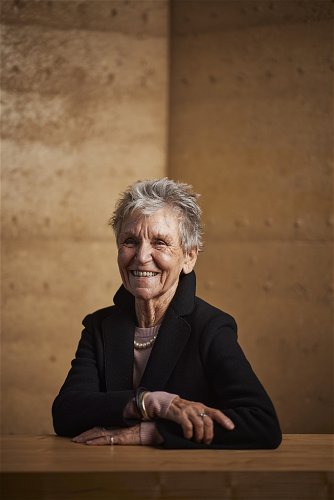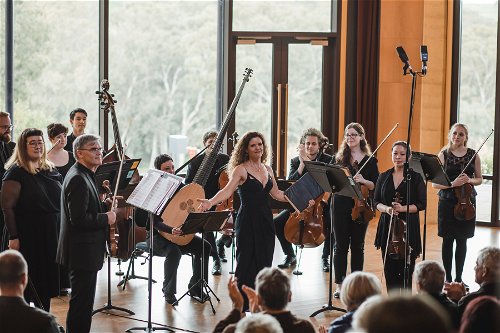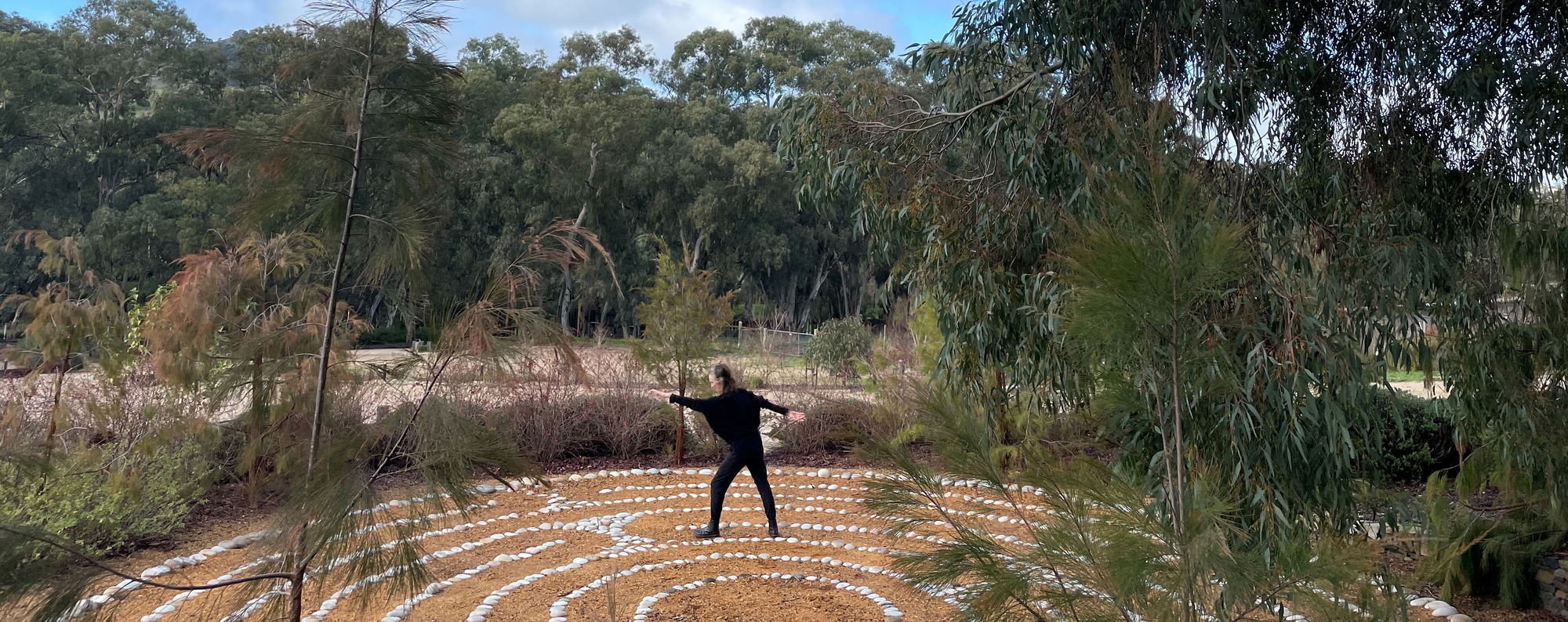
FIONA HILL RESIDENCY
WEDNESDAY 8–FRIDAY 17 JUNE 2022
Sydney-based composer Fiona Hill's UKARIA residency involved a team of collaborators working on a site-specific project entitled Be Here Now.
Later this year Fiona will work with the Sydney Symphony Orchestra Fellows to complete the work, which involves both a live performance outcome as well as a short film.
'The film will draw on our response to being in and resonating with a specific place, in this instance the grounds and buildings of UKARIA. The music will include gestural control elements based on connection to place and interaction with the surroundings, in particular the physical aspects of the environment,' Fiona said.
Composer, Producer | Fiona Hill
Director, Choreographer | Sue Healey
Dancer, Choreographer | Lisa Synnott
Cinematographer | Sam Oster
Cellist | Hilary Kleinig
Camera Assistant | Mike Lim
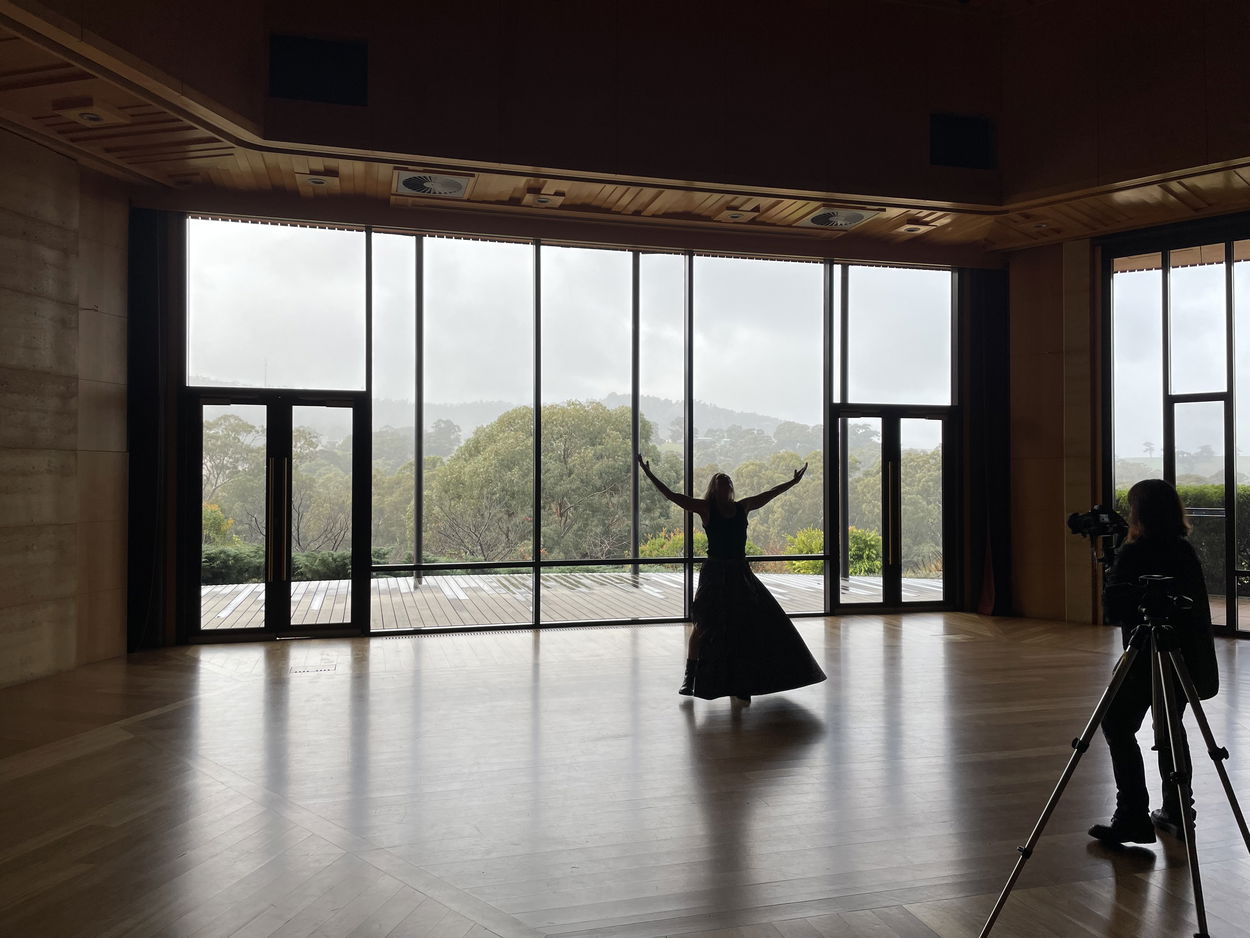
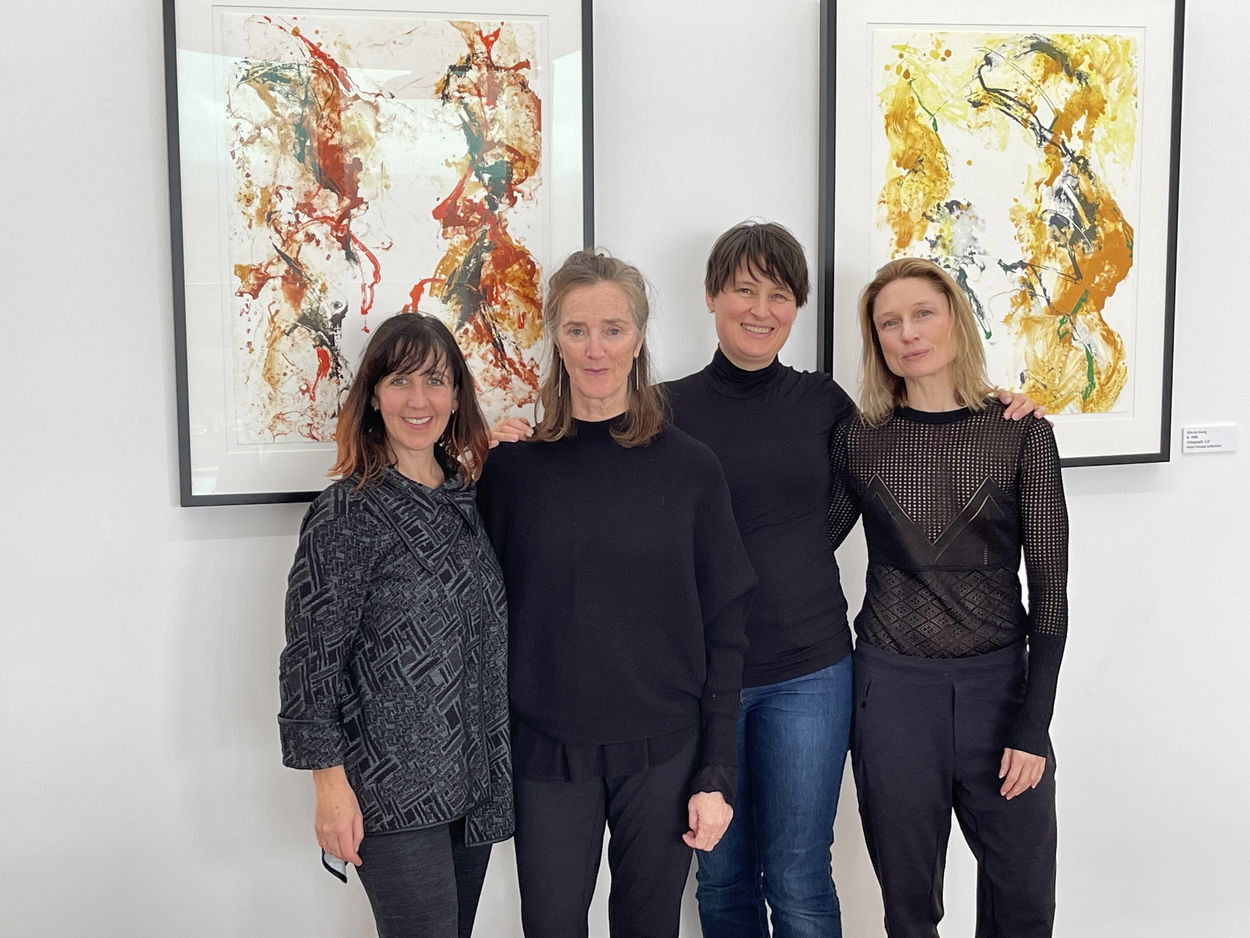
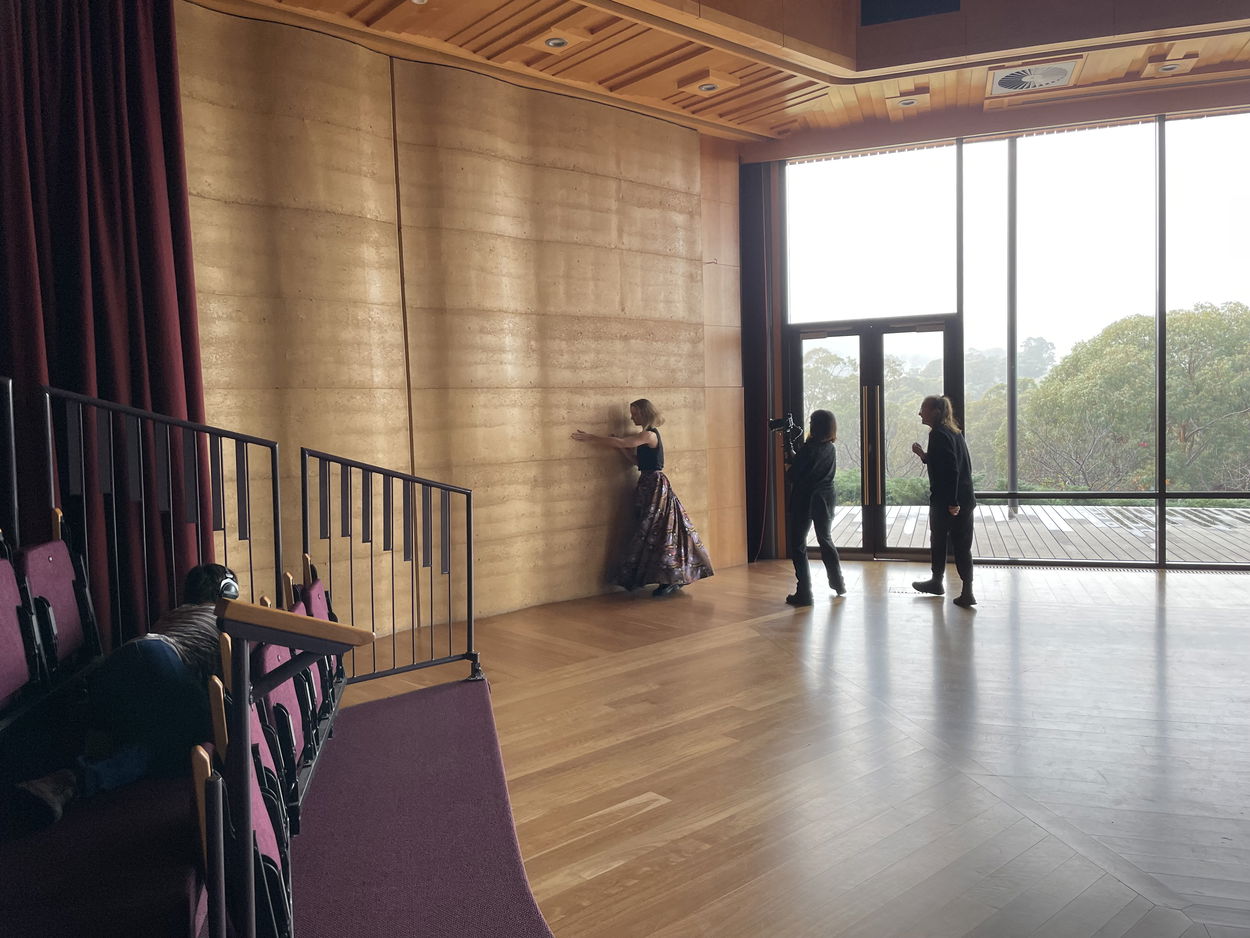
How has site-specific work become your focus?
I’ve always been interested in connection to place, and I’m always striving to incorporate this into my creative practice. For instance, I live in the Blue Mountains, so I spend a lot of time going out into nature and connecting with that physical environment. In exploring the landscape here at UKARIA and Twin Peaks, I’ve found beautiful textures, beautiful trees… there have been lots of walks around the summit and I’ve spent time in the UKARIA gardens both during the day and at night, being in the landscape and finding resonance with it. The title of the project, Be Here Now, illustrates that resonance – being in the moment, in the space.
How might this translate to the new music you are creating here?
A lot of the music when it’s composed will be gestural. I’ve been playing with wearable ‘ring controllers’ – there are six different movements which are mapped to MIDI channels – you connect the controllers via Bluetooth to your computer and then map the gestures to different parameters – for example, one particular movement could be mapped to a filter, another to a resonance control, triggering different samples etc.… so when we’ve been exploring the environment, and the gestures we use (like when we might touch the bark of a tree and map its texture), this will form part of the score. I love texture in my music – shifting textural ideas – and this is always reflected in nature too.
Our process has been really playful – I might see something, or pick up on something, and I won’t have said anything, and then my collaborators will discover it in a different way… making those connections with each other and with the place as well has been a really interesting process… playing within the environment and seeing what reveals itself.
I’m really inspired by the way First Nations understand Country… there’s a book called Song Spirals: Sharing Women’s Wisdom of Country Through Songlines that was written by the Gay'wu Group of Women. I’ve loved reading this book and learning more about the concept of Country – that it’s everything – it’s not just what we want it to be, it’s everything that is here. Everything is connected. Learning from the stories and culture of First Nations people is integral to understanding ourselves as a nation, trying to come to a truer understanding of who we are.
I see my compositional practice as quite a spiritual quest, so absorbing a sense of this place and then having that come out in the music, and being quiet enough within myself to then be able to hear what is around me.
What might your ‘finished product’ look like in the end?
In terms of my scores, I often tend to go back to traditional notation, because I find that’s what the players are used to and it’s just easier – they’ll get what I want quicker! Sometimes there might be more gestural or graphic things within that notation, or the score might be more about how you move on the instrument, rather than legislating specific notes. I'm also currently experimenting with how I can streamline this process for myself as a composer, from idea to score more quickly.
There will be a live performance with the SSO Fellows later this year [2022], but I will also have a fixed film that exists on its own. There will definitely be footage from UKARIA projected in live performance, perhaps projecting onto the players as well as the areas surrounding them… more like an installation rather than simply a film being shown on a screen.
What do you feel is special about this place?
The shifting landscape here is incredible – you can see it in the way the clouds and the rain blow in and out, in watching the eagles soaring around the summit, in the different rocks you can see up on the summit… just everything. It’s just special, it’s just beautiful. I’ve done a lot of exploring on foot – a few trail runs, a big loop coming down to the freeway then back to the summit – the connection between Twin Peaks and UKARIA, and being able to see UKARIA from up on top of the hill and then vice versa, I love that… the perspectives are completely different and it’s been amazing being able to explore both places.
This place has just felt incredibly welcoming, and I feel very fortunate to have time here in this space just to be creative and to focus. I’ve got a young family as well (including two young children and energetic dogs!), so having time where I’m not having to look after other people’s needs and balance that with my own projects, and teaching, and all of the things that we bring together to make our freelance careers work – it’s just so brilliant to have time where you’re supported to create. Just to have quiet time here – you can just focus on the creative work and not have to worry about anything else. I also keep coming back to this idea of the journey of an artist being a process of self-discovery, and I think that the more I create, the more I find that’s absolutely true, especially when I can get out of the way enough for that process to be organic.
This residency was supported by a partnership between UKARIA Cultural Centre and the Australia Council for the Arts




 012.jpg?class=grid1)
